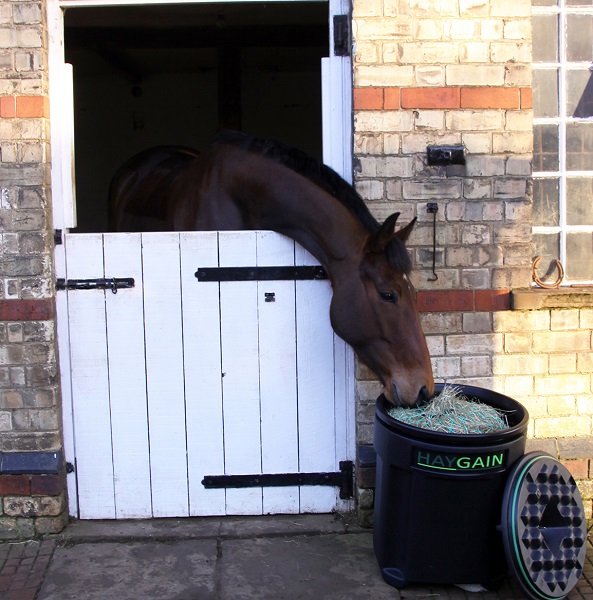Posted: 23rd January 2020 | Back to news feed

Dehydration is something that horse owners are most likely to worry about during prolonged hot weather or when intense exercise means that their horse is visibly sweaty. However, it’s worth noting that there are plenty of other situations when horses are at risk of dehydration and some of them just might surprise you. Horse health company Haygain take a look at the causes of dehydration, how it can affect horses and how to help them stay hydrated.

How horses can become dehydrated
Let’s kick off by looking at the different ways that equines can become dehydrated. The first and most obvious cause is exercise, as the process of cellular respiration uses water and this combined with sweating can lead to dehydration.
The type of feed and forage being consumed by the horse will also impact how much water they need to consume. Horses that are kept at grass 24/7 may get 50 litres of water from the grass itself, as it’s very high in water content. The same horse kept in a stable and fed haylage all day will only be getting 20 litres of water from their forage, so you will probably observe them drinking more water. This can impact horses that are being transported by road, sea or air, particularly if they are only offered dry hay to eat during transport, which has an even lower moisture content. Horses can become distressed and sweat up during transit too, which will lead to dehydration if they aren’t drinking as much as normal.
Another trigger for dehydration is associated with horses drinking less when the temperature drops. When cold weather arrives the water available to them can be really rather cold, and horses are shown to drink less when the water they are offered is very cold. Older horses who may have sensitive or broken teeth need to be monitored very carefully and offered tepid water in the winter.
The risks of dehydration
Horses are actually particularly resistant to dehydration, with a body weight loss of 5% (so around 25kg in a 500kg horse) starting to affect performance. However, there are some significant risks for horses that suffer from dehydration.
When horses do experience dehydration, either because they aren’t drinking enough water or losing it through excessive sweating, their body will draw on water reserves in their hindgut. This is why horses are relatively resistant to dehydration, but this drawing of water from the hind gut can trigger complications. Endurance horses exhibit fewer hindgut noises after races, showing the impact of dehydration on the digestive system. The hindgut having less water means digestive function is reduced and the risk of impaction colic increases.
Dehydration will also cause any mucus present in the airways to thicken, so if a horse is suffering from an inflammatory airway disease (IAD) or allergic reaction, they may well struggle even more to breathe properly.
How to help your horse stay hydrated
Prevention is always better than cure, so if you know your horse is going to be undertaking strenuous exercise, try adding water to any concentrated feeds they receive. Ensure buckets, troughs and drinkers are full and clean so that even fussy horses are happy to drink from them. As we’ve mentioned, the winter can throw up issues for horses who are averse to drinking very cold water, so try adding some warm water to their drinking water when the temperatures plummet.
Feeding steamed forage is another excellent way to increase the water intake of a horse, and it has a range of other benefits for equine health. Steaming hay removes up to 99% of respirable dust (which can contain bacteria, mould and fungi), reduces the incidence of IAD by 65% and improves its palatability. But crucially for those considering hydration it is an excellent source of additional water. A bale of hay will have 3x as much water content after it has been steamed, showing the additional water that it is now holding and the benefits of steaming hay.
Take a closer look at the innovative Haygain Steamer here and learn more about the benefits of steaming.
The Equestrian Index newsfeed is compiled from articles submitted by advertising members and expresses the opinions of those members. Watsons Directories Ltd shall not be held liable for any inaccuracies or mis-statements therein.